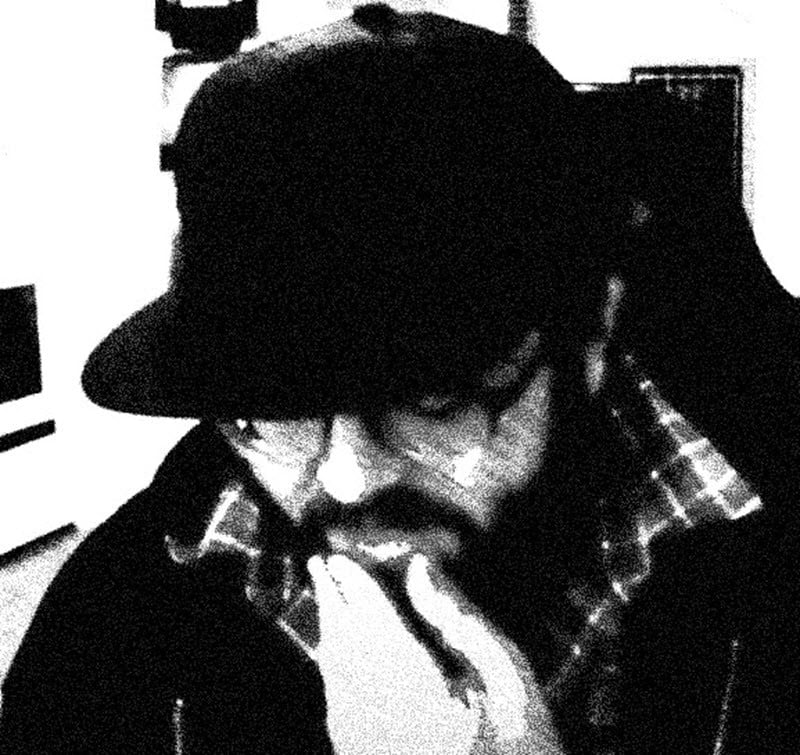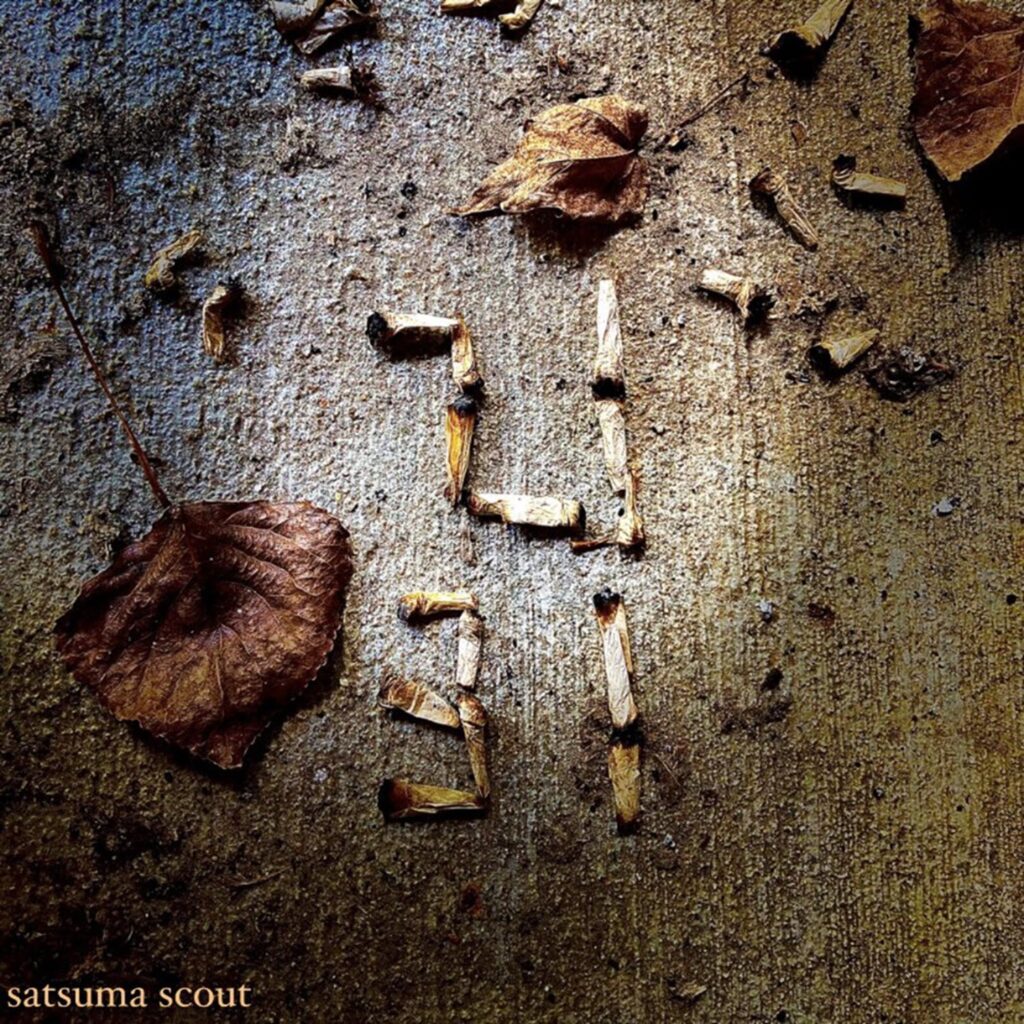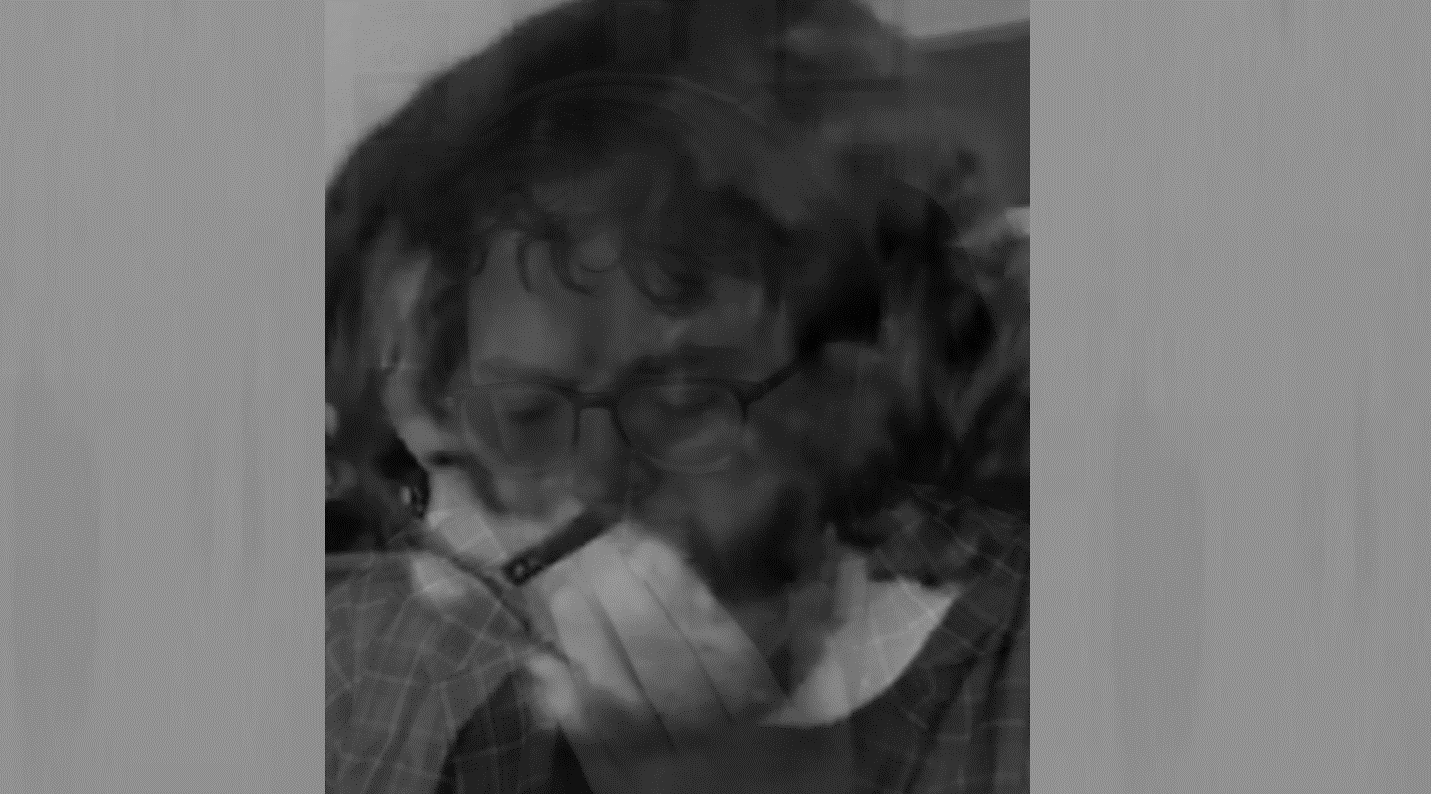Satsuma Scout in his music project weaves pop-punk, folk, and indie alternative influence with a blistering optimism and blunt lyrical honesty while channeling the boredom, anxiety, and dread of the present. He picked up a guitar at age 31 for the first time in nearly ten years, revisiting songs he wrote when he was 21 and releasing an outpouring of new tracks, inspired by this reigniting passion for music that he had long since forgotten. His project was born out of the pandemic (I know, very original). The past year has produced far too many written songs and recorded tracks, which have been both therapeutic and creatively fulfilling. He is now starting to have these songs engineered and prepared for release, with a debut EP (“21/31”) planned by mid-September and an LP (“The Common Room”) by the end of 2022. Check out the single “Day Zero” and the exclusive interview below:

1. Can you tell us a bit about yourself and how your project got started?
SATSUMA SCOUT: Currently, this project is just myself and it was born out of creative frustrations I had and personal issues I was facing during the pandemic. I currently have two singles out that are from an upcoming debut EP I’m releasing called “21/31.” Over a decade ago, when I was 21 and going through a bit of a rough time mentally, I wrote a bunch of songs on guitar that I recorded on my Macbook’s Photo Booth and posted on YouTube. But then shortly after that a bunch of various life events and circumstances kind of stopped all my music in its tracks. During the initial isolation of COVID’s onset, I found myself revisiting a lot of those songs and this music I had created a decade ago was immensely helpful. It was like past me was giving present me a hug, telling me it was going to be okay, especially with one of my current singles, “These Trying Times,” which I wrote at 21. At 31, I started teaching myself these old songs again and tweaking the arrangements, but I also ended up writing a ton of other songs. They just flowed out of me and helped me out of a really dark time. The plan was to create an LP that had a “21” section and a “31” section, and my first single, “Day Zero,” was one of the first songs I wrote and recorded for the latter. But ultimately I decided to take a step back, really fine-tune my humble home recordings and release an EP instead. It’s slated to be released in mid-to-late October!
2. Did you have any formal training or are you self-taught?
SATSUMA SCOUT: I took piano lessons when I was in elementary school, but I soon became more interested in drums, bass and guitar over time. I was in the drumline in marching band and played bass in jazz band, pep band and in the pit for our high school’s musicals. Now I kind of dabble in everything, though some of the more technical elements of musical theory and stuff like that sometimes trips me up. My brain is weird sometimes!
3. Who were your first and strongest musical influences and why the name ‘SATSUMA SCOUT’?
SATSUMA SCOUT: Music has always been a part of my life for as long as I remember, but if I had to pinpoint a direct original source of influence it’d be my mom. She was always playing music in the car, and some of my earliest memories are from the backseat hearing songs from The Beatles, Tracy Chapman and Melissa Etheridge. She was probably so happy and relieved when I finally grew out of the Raffi and Disney songs phase and started going “Mom, play ‘Fast Car!’” So those artists particularly were strong early influences, and then growing up I branched out into other genres. Middle school was filled with a lot of pop punk and emo rock, as well as discovering plenty of classic artists from before I was born. High school and college led me to more indie artists, folk singers and other stuff that still sticks with me today. As for the name, satsuma scout? I used to live on a street named Satsuma and when I lived there I had a cool cat named Scout. I liked the alliteration, and I thought it sounded cool. That’s it. No deeper meaning.
4. What do you feel are the key elements in your music that should resonate with listeners, and how would you personally describe your sound?
SATSUMA SCOUT: One of the things I’ve always admired most about artists I love, not just in music but film and writing as well, is the ability to transform one’s personal vulnerabilities into something far more universal. Creating some type of bridge of empathy that goes both ways. I think it takes a lot to let go and showcase a part of your soul that others might not often see, and if being honest through art is able to reach someone and make them feel less alone, that’s always the most valuable thing for me. At its core, my lyrics and music provide creative therapy to me and helps make me feel better. And if by sharing these songs somebody else listens and goes, “Hey, I feel that.” That’d be the ultimate goal, to reach out and connect with a stranger through music, so I think that level of empathy that exists in the art I create is a strength that’s really important to me. And I try to blend a lot of different influences in my music. There’s a frequent pop punk approach to a lot of my musical elements, but I also try to channel a more folk-like and introspective vibe through my lyrics. But I like to switch things up, and I feel like that makes things more exciting. I even made a rap song, but that probably won’t be shared anytime soon.

SATSUMA SCOUT:
Style covers such a range of things, and everybody’s style is influenced by others in one way or another. It’s just an inevitability of art, you know? It’s about using your inspirations to create something that feels new, and that can be hard sometimes without falling in a trap of trying to emulate another artist you admire. I think growing up I got out a lot of those bad habits. I remember going on a major writing binge of political songs in high school when Green Day’s “American Idiot” came out. Thinking back on those I cringe so hard. The more I’ve become comfortable with myself as an artist, I feel the art has become better as a result. I still carry all my influences with me, I just try to utilize them differently than I used to do in the past.
6. What’s your view on the role and function of music as political, cultural, spiritual, and/or social vehicles – and do you try and affront any of these themes in your work, or are you purely interested in music as an expression of technical artistry, personal narrative and entertainment?
SATSUMA SCOUT:
Music can really be whatever the artist intends it to be, what an audience perceives it as, and what it ultimately becomes based on elements beyond all of our control. Art is crazy like that. It’s a living, breathing thing. My main approach to making music is first and foremost therapy for myself, which I then hope could serve as therapy to others. I wrestle a lot of shit in my lyrics, but when I complete a song, I then have those bad things pinned down in ways I wasn’t able to before. But I also want to make bops! It’s a mix of so many things, but my biggest approach is always that empathetic bridge I talked about earlier.
7. Do you feel that your music is giving you back just as much fulfilment as the amount of work you are putting into it, or are you expecting something more, or different in the future?
SATSUMA SCOUT:
Any musician, if you’re putting your music out there in the world, wants to find some type of audience. They want to be able to do the thing they love and find immense fulfillment from, and sometimes the reality of that is you need to balance life and art if that latter isn’t paying the bills. So I balance making music with a 9-5 desk job and just try to fit it into my mental bandwidth. But when I do make music, that fulfillment is enough for me. And for artists, the art should always come first. At the end of the day, “success” is what you make of it. If for some reason I was able to significantly break out in the industry, that’d be amazing, but if I get creative fulfillment out of my art and these songs are able to make an impact for somebody else, even if it’s slight, that’s a reward in and of itself. If you’re making art for the money, you’re doing it for the wrong reasons.
8. Could you describe your creative processes? How do usually start, and go about shaping ideas into a completed song? Do you usually start with a tune, a beat, or a narrative in your head? And do you collaborate with others in this process?
SATSUMA SCOUT:
Lyrics often come first and sometimes the melody is already there too. I usually immediately open up the notes app on my phone and start a new thing to plug ideas into whenever they come. The song just kind of builds and builds in my head until I finally try to translate it into something beyond that, and then it usually becomes something else during that process that I never expected it would. That evolution is exciting.
9. What has been the most difficult thing you’ve had to endure in your life or music career so far?
SATSUMA SCOUT: Life has had its things, you know? Death. Trauma. Heartbreak. It happens in some form to all of us. Music is what has gotten me through a lot of it. On the music front, really diving deep into songwriting again this past year has been a constant learning experience. I taught myself a lot of production elements just by immersing myself in the process, and every new song I worked on showed me something different about myself. I think the most surprising thing was how I was approaching the creative process of music versus film and writing, which is something I also do. But with those artforms, I often find aspects like revisions and killing your darlings hard to do. With music, revision was such a huge part of the process and there was a full massacre of darlings that I was surprisingly okay with. Initially accepting that was a bit difficult, but I ultimately think that mindset helped create better songs in the end.
10. On the contrary, what would you consider a successful, proud or significant point in your life or music career so far?
SATSUMA SCOUT: Honestly, just ripping off the band-aid of sharing my songs. The past year of writing and recording was such an isolated process, and it was lonely at times. But immediately after sharing my work in the public realm, so much of that anxiety was lifted. Just the fact that I’m about to release an EP and have enough for an eventual LP afterward is an achievement for me. I had a goal and I stuck with it and for that I’m proud, and it also pulled me out of a really tough spot mentally and for that I’m grateful. Just being able to do this is significant.
KEEP IN TOUCH:
INSTAGRAM | TWITTER | SPOTIFY | YOUTUBE

